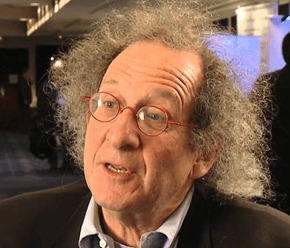 Data Guy has told how B5 publishers are losing market share in the e-book world.
Data Guy has told how B5 publishers are losing market share in the e-book world.
Now here’s another reason why debut writers and midlisters just might want to go the DIY route and publish on their own.
Even Mike Shatzkin (photo), a consultant to major publishers, is publicly bemoaning the pathetic support that writers receive in their digital marketing efforts. He himself is not saying: “Avoid traditional publishers.” But following up on comments at Digital Book World, he has written a blog post insightfully zeroing on the big issue here.
“It is my firm conviction that the biggest shortcoming of traditional publishers these days is their failure to help authors help themselves with digital marketing,” Mike writes.
“At the very least, every house should do a ‘digital audit’ for every author they sign that includes concrete suggestions for filling in gaps and improving discoverability and engagement,” he said earlier at DBW. “To my knowledge, not one does.”
Let me further quote Mike’s post below at length, for ever syllable below makes sense:
“Perhaps it isn’t surprising that there are people in big houses, even some who view things from a high perch, who emphatically don’t agree with me. One senior executive told me I was ‘completely wrong’, and said their editors were very much up to speed with what authors do on social media. Another, a publisher from a different house, asked me if I really believed ‘landing pages were important’. Of course, if you don’t see the pay-off from creating and managing landing pages on an author’s website (or the publisher’s own!), you might make the mistake of thinking a robust social media presence obviates the need for an author web site.
“That is a mistake. And it is an increasingly common one.
“Citing the expertise of editors as the lead claim for a house’s expertise is a tip-off. I have never seen the publishing house where editors were more expert in digital marketing than marketers are. Most author websites are sub-standard, but most editors don’t have the knowledge to know that. And, on top of that, neither editors nor authors fully understand the different roles of websites and social media in the marketing effort for a book and author.”
I call ‘em as I see ‘em, and I continue to deplore Mike’s views on the future of public libraries even though he and I are friends. But on the issue on publishers’ support of writers’ marketing efforts, he is absolutely on the money. I want publishers of all sizes, from Penguin Random House on down, to thrive. Better digital marketing, in cooperation with authors, is one way for this to happen.
Some advice for literary as opposed to commercial authors: The world of high lit can be a rather snobbish place. Long term, regardless of the issues Mike raises and the gloomy news from Data Guy, it probably make more sense for debut authors of literary novels to publish with a respected press, of any size, rather than going the DIY route. That can always happen later. But even then, you may have find that major reviewers ignore you, especially those writing mainly for print. Alas, the lit world is less digitally oriented than the world of genre fiction (no, I won’t get into a discussion of the differences between the two even though I recognize that overlaps might exist in some cases).
And further details on publishers’ support of authors’ digital marketing efforts: While I agree with Mike on the extent of the problem, it isn’t as if publishers are entirely oblivious to it. In fact, a Houghton Mifflin executive named Brad Parsons has even used the A word: “When we sign up authors, we always do an online audit and a social media audit. One of the big plusses of having a Facebook fan page is being able to co-manage it along with the author. The community aspect is enormous. It is frustrating that the organic reach of it has decreased over the past year.” In a similar vein, I suspect that Open Road Media is probably better than most at supporting writers’ digital marketing efforts. Open Road is a successful born-digital publisher that started marketing older books but has now expanded into other areas.
































